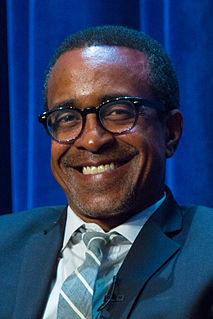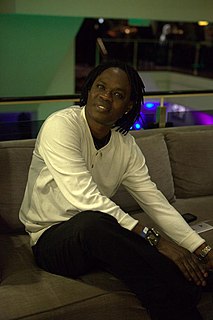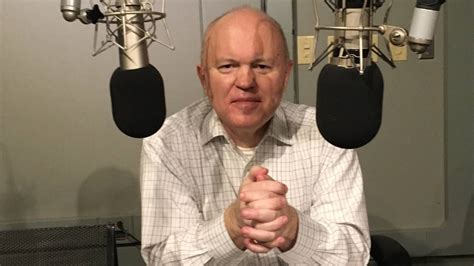A Quote by Pete Seeger
The good and bad are all tangled up together. American popular music is loved around the world because of its African rhythm. But that wouldn't have happened if it wasn't for slavery.
Related Quotes
I don't regret the fervor, because I do believe, in the African American community but also for other communities, and I know from talking to people, for communities around the world, the election of an African American to the most powerful office on Earth meant things had changed, and not just in superficial ways. That in some irreversible way the world was different.
With a few exceptions like Kraftwerk, most great 20th century Western music is in some way American-based. And the great paradox of America, the paradox that distills America, is that this greatest of American contributions to humanity, this American contribution that probably has influenced more people around the world for the good, that probably has brought more people around the world unqualified joy, was born of America's greatest evil, slavery. Or one of the two great evils anyway, counting the European extinction of those who were on the continent first.
Michael Jackson fundamentally altered the terms of the debate about African American music. Remember, he was a chocolate, cherubic-faced genius with an African American halo. He had an Afro halo. He was a kid who was capable of embodying all of the high possibilities and the deep griefs that besieged the African American psyche.
I did not like that name "world music" in the beginning. I think that African music must get more respect than to be put in a ghetto like that. We have something to give to others. When you look to how African music is built, when you understand this kind of music, you can understand that a lot of all this modern music that you are hearing in the world has similarities to African music. It's like the origin of a lot of kinds of music.




































